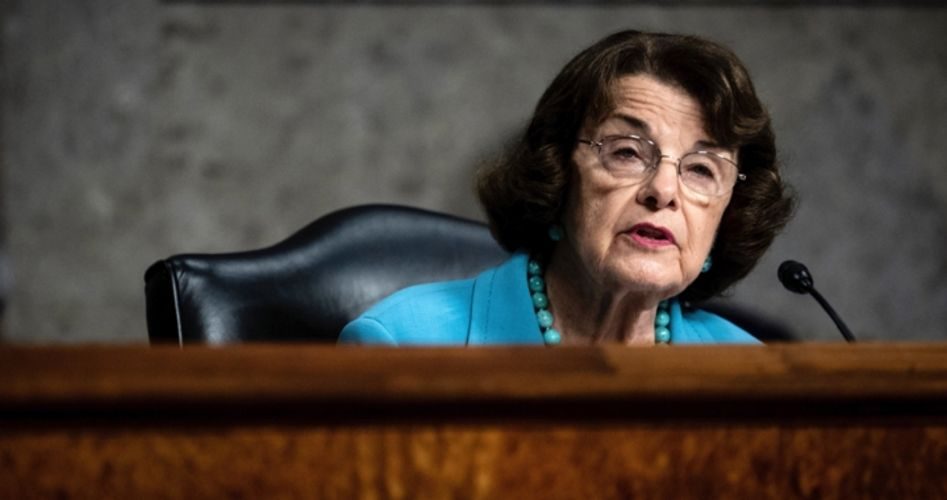
California Democrat Senator Dianne Feinstein, who just turned 87 in June, is causing angst among more than a dozen fellow Democrats who think she could botch the party’s resistance to whomever Trump nominates to the Supreme Court on Saturday.
A botch could cost the party seats in the next Congress, just the way it did following her scurrilous attack on Trump’s nominee Brett Kavanaugh in September 2018 just before the midterm elections.
According to Politico:
Feinstein, the oldest member of the Senate, is widely respected by senators in both parties, but she has noticeably slowed in recent years.
Interviews with more than a dozen Democratic senators and aides show widespread concern over whether the California Democrat is capable of leading the aggressive effort Democrats need against whoever President Donald Trump picks to replace the late Justice Ruth Bader Ginsburg….
Feinstein sometimes gets confused by reporters’ questions, or will offer different answers to the same question depending on where or when she’s asked.
Her appearance is frail. And Feinstein’s genteel demeanor, which seems like it belongs to a bygone Senate era, can lead to trouble with an increasingly hardline Democratic base uninterested in collegiality or bipartisan platitudes.
One of those Democrat senators, speaking anonymously with John Bresnahan of Politico, said, “She’s not sure what she’s doing. If you take a look at [the] Kavanaugh [hearing], we may be short two senators because of that. And if this gets [messed] up, it may be the same result.”
When Feinstein learned of their concerns, she expressed surprise and then doubled down on her plans to disrupt, delay, and possibly end the career of whomever Trump nominates:
Let me say this — I know it’s going to be a fight, I understand that. I don’t have a lot of tools to use, but I’m going to use what I have. We can try to delay and obstruct but they can run this process through.
That doesn’t mean that we won’t fight tooth and nail.
Senator Feinstein has a history of using underhanded tactics. On September 13, 2018, one week before the Senate Judiciary Committee (of which she is the ranking member) was scheduled to vote on Trump nominee Brett Kavanaugh to the Supreme Court, she pulled a stunt that reverberates to this day. She said:
I have received information from an individual concerning the nomination of Brett Kavanaugh to the Supreme Court. That individual strongly requested confidentiality, declined to come forward or press the matter further, and I have honored that decision.
I have, however, referred the matter to federal investigative authorities.
She was referring, of course, to a letter she received from Christine Blasey Ford, a liberal college professor, accusing Kavanaugh of sexual misconduct decades earlier. Feinstein had sat on the letter for six weeks, waiting until the last possible moment in order to inflict the most possible damage on Kavanaugh.
To his credit, Kavanaugh fought back:
These are smears, pure and simple. And they debase our public discourse. But they are also a threat to any man or woman who wishes to serve our country.
Such grotesque and obvious character assassination — if allowed to succeed — will dissuade competent and good people of all political persuasions from service.
As I told the Committee during my hearing, a federal judge must be independent, not swayed by public or political pressure. That is the kind of judge I will always be.
I will not be intimidated into withdrawing from this process. The coordinated effort to destroy my good name will not drive me out. The vile threats of violence against my family will not drive me out. The last-minute character assassination will not succeed.
Kavanaugh was confirmed by the narrowest of margins, and is now coming into his own as a Supreme Court justice. And the Democrat Party lost two senators in the 2018 midterms.
Photo: AP Images
An Ivy League graduate and former investment advisor, Bob is a regular contributor to The New American, writing primarily on economics and politics. He can be reached at [email protected].



